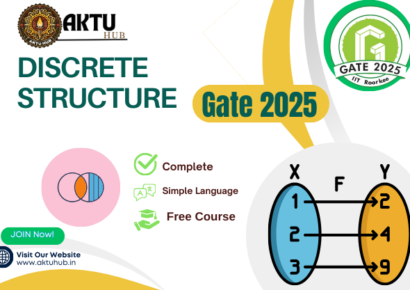Currently Empty: ₹0.00
Computer Networks Gate 2025
- Intermediate
- 8
- September 23, 2024
- Certificate of completion

About Course
The Computer Networks course for GATE 2025 is designed to equip aspiring engineers and computer scientists with a robust understanding of network architecture, protocols, and technologies essential for success in the exam and future careers. In an increasingly interconnected world, knowledge of computer networks is critical, and this course aims to provide a comprehensive overview of the foundational concepts and advanced topics within this field.
Computer Networks for GATE 2025 syllabus:-
Throughout the course, students will explore the fundamental principles of data communication, including the various modes of transmission and the significance of bandwidth and latency. Understanding these concepts is crucial for grasping how data flows through networks and the factors that influence network performance.
One of the core focuses of the course is on the OSI (Open Systems Interconnection) and TCP/IP (Transmission Control Protocol/Internet Protocol) models. Students will learn the functions of each layer in these models, from physical transmission to application-level protocols. This layered approach allows for modular design and troubleshooting of network systems, making it an essential aspect of networking education.
The course will delve into a variety of networking protocols, including TCP, UDP, IP, HTTP, and others. Understanding these protocols will enable students to comprehend how devices communicate over networks, handle data packets, and ensure reliable data transmission. Additionally, students will gain insights into the various network topologies—such as star, ring, and mesh—and the implications of each design on performance and scalability.
Security is another critical component of the curriculum. With the increasing threats to data integrity and privacy, students will study essential security protocols, firewall implementations, and encryption techniques. This knowledge is vital for designing secure networks and protecting sensitive information from cyber threats.
Wireless networking technologies will also be covered, including Wi-Fi standards, Bluetooth, and mobile networking. As wireless communication becomes more prevalent, understanding these technologies is essential for modern network design.
Finally, the course will address network management techniques, focusing on monitoring, troubleshooting, and optimizing network performance. Students will learn how to use various tools and methodologies to ensure efficient operation of network systems.
Computer Networks for GATE 2025:
The course will provide detailed lecture notes, recommended textbooks, practice problems, engaging video tutorials, and interactive online quizzes to reinforce learning. By the end of the course, students will possess a comprehensive understanding of computer networks, preparing them for the GATE exam and future endeavors in computer science and engineering.







Chethan